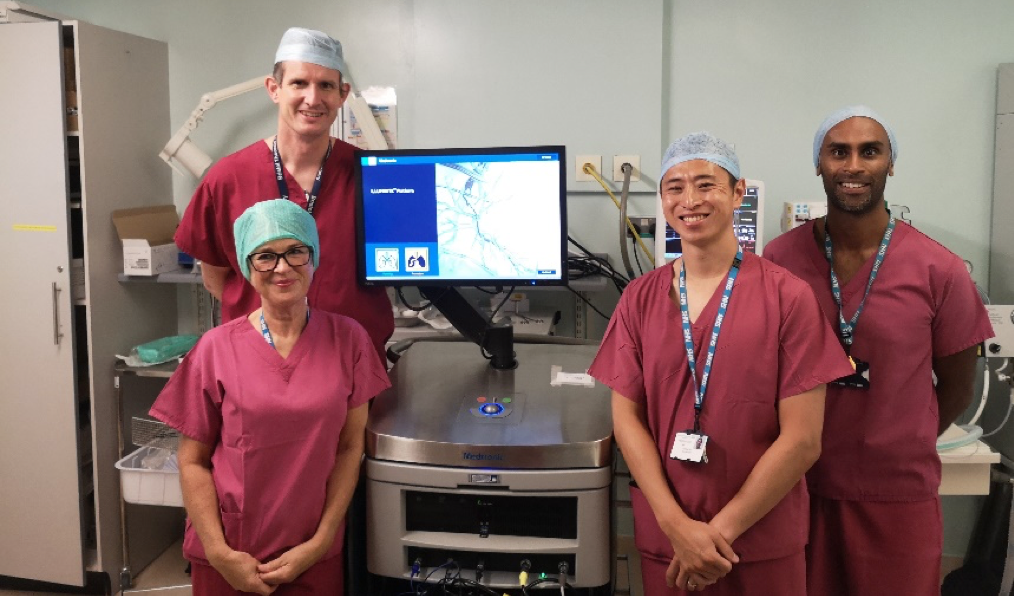Navigational bronchoscopy at University Hospital’s Bristol and Weston
We are pleased to announce a new regional navigational bronchoscopy service in SWAG Cancer Alliance, supported by a SWAG innovation grant. The service is based at University Hospital’s Bristol and Weston but will benefit all suitable SWAG patients.
Navigational bronchoscopy provides a three-dimensional virtual “roadmap” that enables diagnosis of small lung nodules more accurately than ever before.
For our patients this means a fast diagnosis of cancer, and therefore earlier treatment with better patient experience and outcomes.
For those where cancer is ruled out, it prevents diagnostic surgeries and long term out-patient follow up.
It will also benefit our hospital services and the workforce by freeing up capacity which will in turn increase the ability to provide more and faster diagnostic testing and treatments.
“It is great news that patients across SWAG will now have navigational bronchoscopy available when a biopsy is not possible with conventional methods. For some people this will avoid the need for surgery if their lump can be proven to be not cancerous, and for others it will mean that they won’t need several months of follow up before treatment can be planned” – Dr Henry Steer, Consultant Respiratory Physician, SWAG Clinical Lead for Lung Cancer, Gloucestershire Hospitals NHS Foundation Trust
“We are delighted to have been able to support this innovative service that will enable faster diagnosis and treatment for patients with lung cancer and grateful to the team for all their hard work in launching the service.
Our efforts to tackle cancer and have seen record numbers of people coming forward for tests and checks in the last year thanks to our campaigns and early diagnosis initiatives, but for lung cancer, we have not seen referrals bounce back at the same rate as other cancers.
It is vital that people stay alert against suspected lung cancer symptoms, so if you have a continuous cough or breathlessness, don’t ignore or assume it’s something else, please visit your GP and get it checked out- it probably won’t be cancer but catching it early can help save lives” – Dr Amelia Randle, Clinical Lead for Community Settings of Care SWAG Cancer Alliance.

